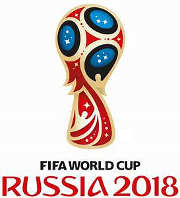| AI Predicts World Cup Winners |
| Written by Kay Ewbank | |||
| Saturday, 16 June 2018 | |||
|
An AI system has been used to calculate the likely winners of this year's FIFA World Cup; and the real shock is the system didn't pick Germany. The FIFA World Cup 2018 is underway at the moment in Russia, with 32 teams from across the world taking part.
The AI system was created by a group of researchers from various universities, including the Technische Universitat of Dortmund in Germany, the Technical University in Munich, Germany, and Ghent University in Belgium. In fact, the researchers had been working on the system for several years, with earlier systems correctly predicting the eventual winners of the 2014 FIFA World Cup as Germany using a regularized Poisson regression model; and a sparse bivariate Poisson model for the UEFA European Football Championship 2016. This time, using a combination of systems as the basis of the machine learning, the researchers say their model slightly favors Spain, with defending champions Germany. being the runners-up. (This was all estimated before Spain sacked their manager two days before the start of the tournament.) The system then had Brazil and France as the other teams in the quarter finals. While the system picks Spain as the most likely overall winner, it shows Germany as most likely winners if they make it to the knockout stage of the competition, probably beating Spain in the semifinals. However, Germany has a much harder group stage, so stands a higher chance than Spain of being knocked out, hence the selection of Spain overall. The full table of countries and their chances of winning, according to the researchers, is below:
The latest research used machine learning and based its prediction on factors including the FIFA ranking of each country's team, and the odds given by bookmakers of the country winning. The number of times players have won the Champions Leagues is another factor, along with how many of the players play together in a club and their average age. Other factors are less obvious - the population of the country and its GDP (Gross Domestic Product) make sense, but aren't directly related to sport. According to the research paper describing the system, all these factors were included. The researchers compared three different modeling approaches for the scores of soccer matches with regard to their predictive performances based on all matches from the four previous FIFA World Cups 2002-2014: Poisson regression models, random forests and ranking methods. The researchers say that: "While the former two are based on the teams' covariate information, the latter method estimates adequate ability parameters that reflect the current strength of the teams best. Within this comparison the best-performing prediction methods on the training data turn out to be the ranking methods and the random forests." Using this system, the FIFA World Cup 2018 was simulated repeatedly, and winning probabilities obtained for all teams. At least it's all a bit more scientific than the 2010 World Cup, when a 'psychic' octopus called Paul was the pundit of choice, with 12 correct predictions out of 14, in choosing which team would win in matches Germany was taking part in. More InformationOriginal Research Paper On ResearchGate Related ArticlesGoogle Provides Free Machine Learning For All Earthquake Prediction Using Machine Learning Nearly A Third Of Devs Using AI And ML Amazon's Giant Push Into Machine Learning Machine Learning Identifies MOMA Artworks DeepMind's AlphaZero Triumphs At Chess
To be informed about new articles on I Programmer, sign up for our weekly newsletter, subscribe to the RSS feed and follow us on Twitter, Facebook or Linkedin.
Comments
or email your comment to: comments@i-programmer.info |
|||
| Last Updated ( Saturday, 16 June 2018 ) |




